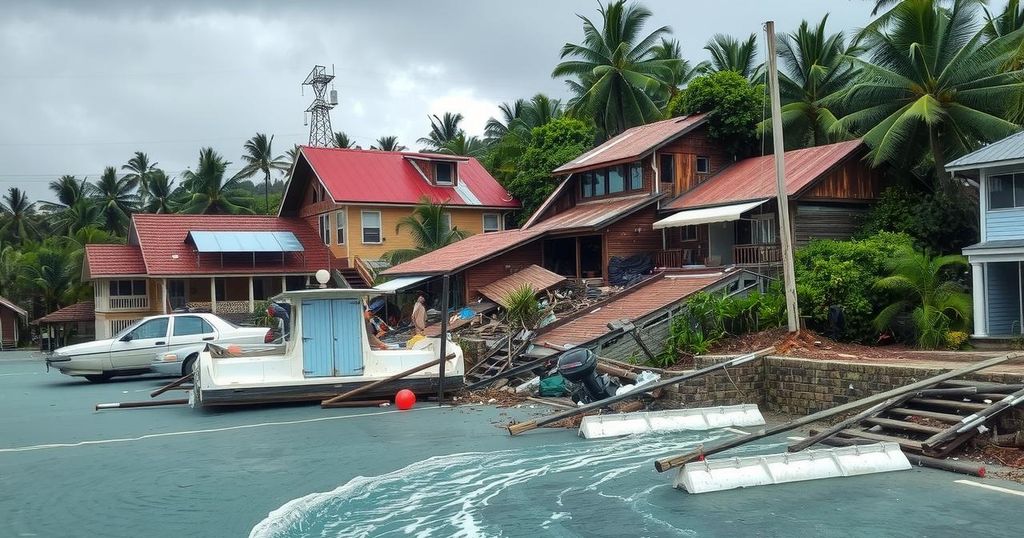Devastation in Mayotte Following Cyclone Chido: Widespread Destruction and Rising Toll

Cyclone Chido recently struck Mayotte, causing catastrophic destruction and a rising death toll feared to reach in the thousands. Widespread devastation has left communities in ruins, complicating rescue and recovery efforts due to the disruption of critical infrastructure. Experts suggest that climate change exacerbates the intensity of such storms, raising significant concerns for vulnerable regions like Mayotte.
Mayotte has recently witnessed unparalleled destruction due to Cyclone Chido, a catastrophic category 4 storm that struck the archipelago after intensifying while passing through the Indian Ocean. This storm is being compared to an atomic bomb, dramatically altering the landscape and inflicting severe damage on both infrastructure and human life. Local residents report complete obliteration of neighborhoods, particularly those constructed of informal housing materials, leading to fears of a mass casualty situation with predicted fatalities reaching potentially into the thousands. Rescue operations, complicated by the damage to essential services, have resulted in significant delays, leaving many areas unreachable for aid delivery.
Given its geographical location off the coast of Africa, Mayotte is known for its vulnerability to severe weather events. The recent storm marks the first such devastating cyclone to hit the territory in 90 years, shedding light on the increasing severity of natural disasters likely exacerbated by climate change. The cyclone not only destroyed residential areas but also disrupted critical infrastructure, including electric grids, hospitals, and communications, further complicating rescue efforts in the islands. As the community grapples with profound loss, support from both local and international agencies is gradually mobilizing to assist in recovery and restoration efforts.
Cyclone Chido made landfall over Mayotte, which comprises two main islands within the Indian Ocean, situated just west of Madagascar. This region typically experiences a cyclone season between mid-November and late April, but the ferocity of Chido is unprecedented in nearly a century. The damage inflicted extends beyond physical structures, affecting the social fabric of a territory already struggling with poverty, unemployment, and substantial undocumented migration. Climate scientists are increasingly concerned that rising sea temperatures due to climate change are contributing to the intensity and frequency of such storms, complicating disaster response and recovery.
The events in Mayotte following Cyclone Chido underscore the catastrophic potential of climate change on vulnerable communities. The local populace is now faced with a humanitarian crisis, characterized by extensive destruction, disruption of services, and loss of life. As efforts to assess the damage and provide aid begin, it is imperative for national and international entities to prioritize support to rebuild and strengthen resilience against future calamities. Mayotte serves as a stark reminder of the urgent need for action on climate adaptation and disaster preparedness.
Original Source: www.cnn.com








